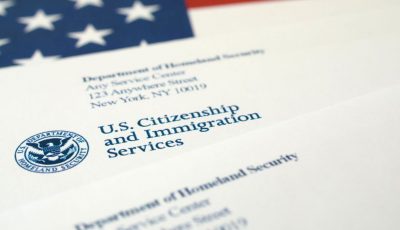CUC’s request for TRO denied
Judge orders expedited hearing whether CW-1 workers allowed to continue work
U.S. District Court for the NMI Chief Judge Ramona V. Manglona has denied the request of the Commonwealth Utilities Corp. and 18 of its affected foreign workers for a temporary restraining order that would allow these CW-1 workers to immediately return to work.
After hearing all arguments at the hearing that began at 3:45pm and adjourned at 7:10pm Tuesday, Manglona stated her ruling and denied CUC and the 18 foreign workers’ request for a TRO.
According to the hearing’s minutes, Manglona, however, stated that plaintiffs CUC and the 18 foreign workers may still pursue their claim for a permanent injunction.
Manglona expressed willingness to set a hearing on an expedited basis and allow for full briefing by the parties.
Manglona set the hearing for plaintiffs’ motion for preliminary injunction for Jan. 21, 2016, at 9am.
Plaintiffs CUC and the 18 foreign workers are ordered to file their opening brief by Jan. 11, 2016.
Defendants Homeland Security Secretary Jeh Charles Johnson, Immigration and Customs Enforcement Director Saarah Saldana, and U.S. Citizenship and Immigration Services Director Leon Rodriguez are ordered to file their opposition brief by Jan. 16, 2016.
The plaintiffs, through counsel James Sirok, sued defendants Johnson, Saldana, and Rodriguez over the delayed renewal of their Commonwealth-only worker, or CW-1 permits. CUC also asked the court to issue a TRO.
Asked for comments about Manglona’s denial of their request for TRO, Sirok said although the TRO was not granted, the judge set the matter for a preliminary injunction hearing combined with a hearing on the merits of the case (trial) to commence on Jan. 21.
Sirok said USCIS has assured CUC that the petitions for its 20 CW-1 workers, including the 18 plaintiffs, will be processed (adjudicated) by Jan. 16, 2016.
Sirok said USCIS also represented to the court that all CW-1 petitions for the CNMI, regardless of the date of filing, will be processed by Jan. 16.
Sirok said CUC continues to maintain that all CW-1 transitional workers, including CUC’s, are authorized to continue to work past the expiration of their authorizations for a period of at least 10 days under 8 CFR 214.2(w)(16), and until USCIS makes a determination on the petitions once they are timely filed under Section 558 of the federal Administrative Procedure Act (5USC 558).
Sirok said the question of whether USCIS can take the position that CW-1 transitional workers may not continue to work after the expiration date shown on their authorizations is an issue that needs to be addressed in light of these two provisions of the law, and the fact that it will continue to be an active question for employers of CW-1 workers as long as the transitional period in the CNMI continues and the ability of employers to extend the period of authorization for their CW-1 workers during this period available.
Sirok said while USCIS pointed its finger at CUC for delaying its filing of the petitions for the extension of stay for the CW-1 workers who are plaintiffs in this case, it should be noted that it is DHS and USCIS that has delayed the adoption and implementation of the proposed rule change it published in May 2014.
He said the proposed rule change would have provided for the continued ability of a CW-1 worker to work for up to 240 days after the expiration date of the CW-1 authorization while the petition for extended stay was being processed.
“It is highly probable that if this proposed rule would have been adopted after publication the calamity that the CW-1 employers and the CNMI has faced since Dec. 31, 2015, in the closing of businesses, loss of revenue, and overall economic harm would have been avoided,” Sirok said.
“In this respect, the better question is why hasn’t DHS and USCIS adopted this rule change after publishing that it is in the best interest of DHS, USCIS, the public, and the CW-1 employer/employee to do so?” Sirok said.
In defendants’ opposition to the TRO, assistant U.S. attorneys Jessica F. Cruz and Mikel W. Schwab said CUC only filed its petitions for extension of the workers’ status last Dec. 28—a mere three days prior to the expiration of their nonimmigrant status.
CUC acting executive director Gary P. Camacho testified at the hearing that the affected foreign workers are all highly skilled personnel assigned at the power plants in Lower Base.



























